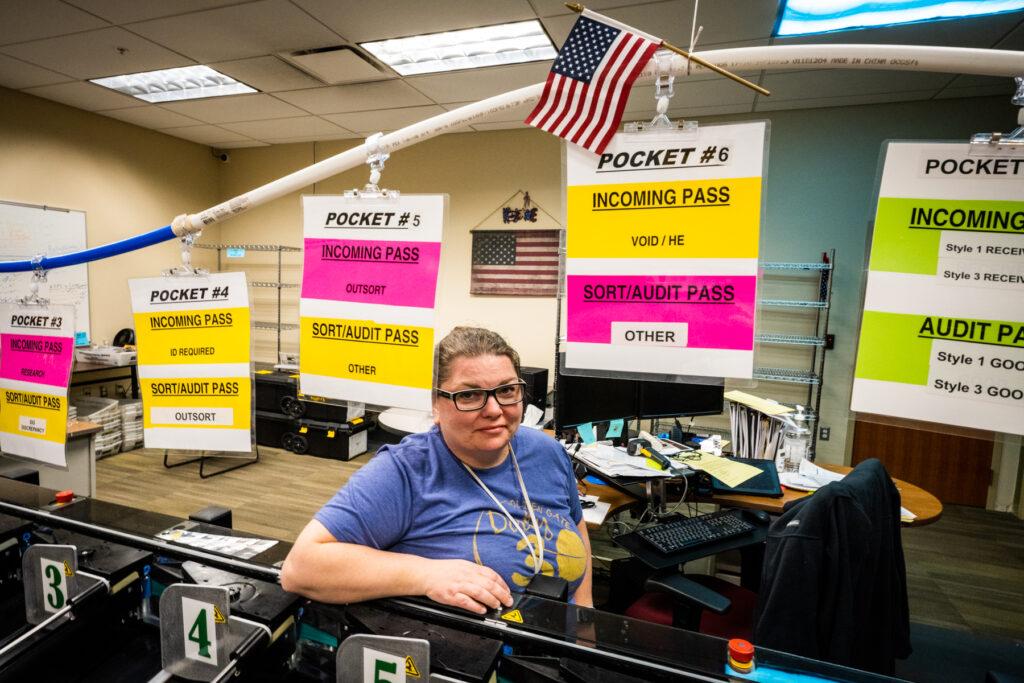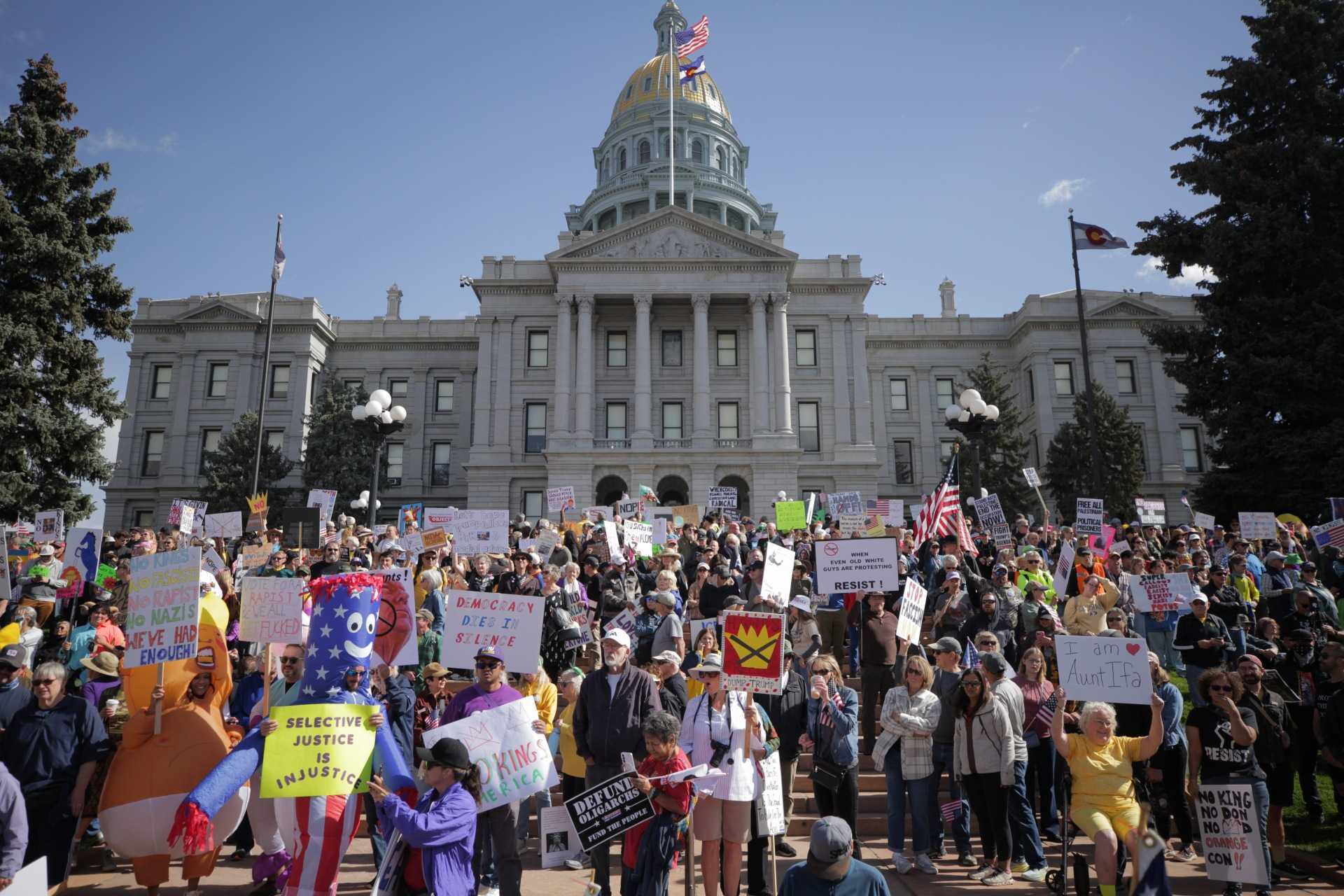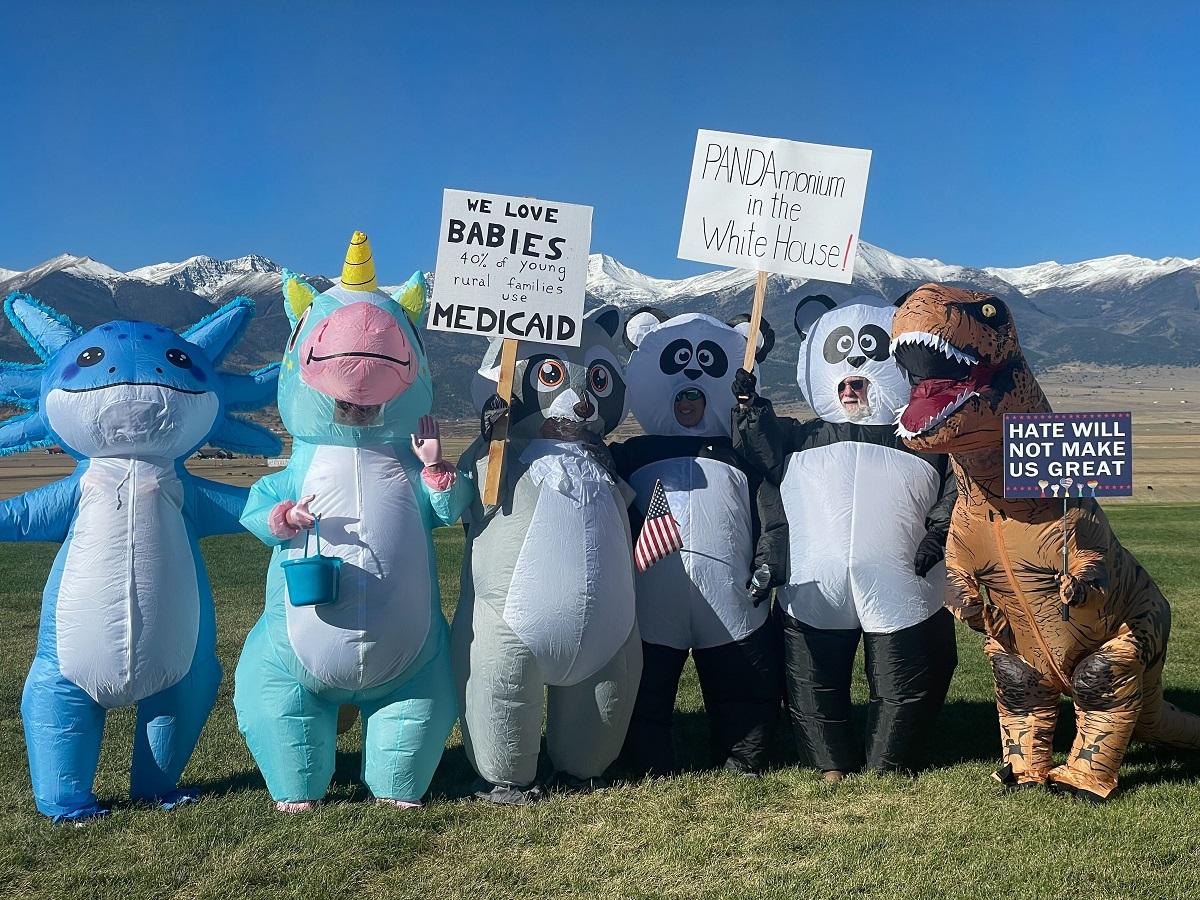
CPR is covering each day of the Peters' trial. You can read our explainer of the case here, and catch up on past days here.
The trial of former Mesa county clerk Tina Peters continues in Grand Junction this week, with the prosecution working to make its case that she committed identity theft while searching for evidence of fraud on her county’s voting machines.
As the state builds its case against Peters, it’s used one of her own past employees to walk jurors through the meeting where the former clerk allegedly began planning to bring an unauthorized outsider to a secure software update and have them make before-and-after copies of her office’s election equipment hard drives.
On Friday, and again on Monday, the jury heard audio of a 2021 meeting in Peters office, in which she had members of her staff come to talk with Douglas Frank, a former math teacher from Ohio who has become a leading figure in the movement to discredit the 2020 election.
“I think it's a feather in your cap. If you can say, ‘We discovered this corruption in our county and we've cleaned it up,’” said Frank in the recording, which was made secretly by front office elections manager, Stephanie Wenholz during her time with him.

Wenholz testified that much of his discussion was about inflated voter rolls and phantom ballots.
“I've been going around the country helping lots of people,” Frank says on the recording, “(MyPillow CEO) Mike Lindell pays me to do that, okay? So you don't have to pay me.”
Lindell is a major proponent of the falsehood that the 2020 presidential election was stolen from former president Donald Trump.
During the meeting, Frank then asked for data on every voter on Mesa County’s rolls, including when they registered to vote and which elections they voted in. A staffer explained that that information is publicly accessible for a fee.
“If you gave me that, I can run my algorithms on that and I can tell you where to start looking,” he said.
At one point, Brandi Bantz, Mesa County's director of elections, explained that the county’s Dominion Voting Systems machines were not connected to the internet, noting that she had checked them herself when she started her job. Frank said he believed the Mesa County staff were patriots, and paying close attention to their jobs, but were unaware of the nefarious forces working to subvert elections.
During the meeting, Peters invited Frank to return in several weeks, when the state would be updating the voting machine software. Frank responded that he wasn’t the guy she needed, “but I know the team and they'll do it for you and they'll come in with the best in the country.”
Peters then asked Wenholz and Bantz to leave the room for the rest of the discussion. Two of the people who stayed in the room — Peters’ then deputy Belinda Knisley and elections manager Sandra Brown — have both since taken plea deals and agreed to testify against Peters. Neither have taken the stand yet in this trial.
Wenholz testified that the same day as the closed-door meeting with Frank, a broader swath of the clerk’s office staff was required to attend a public presentation by him at Grand Junction’s DoubleTree hotel. She said the event made her fear for her safety, a claim the defense seized upon during cross-examination.
“Did anyone actually threaten you?” asked the attorney for the defense.
“No. It was more of the environment. It was anti-elections and administrators and what we do,” Wenholz responded.
Correction (Aug. 6, 2024): A previous version of this story incorrectly described the speaker and what she said on tape about the status of voting machines in Mesa County. Director of Elections Brandi Bantz is heard on the tape explaining that the machines are not connected to the internet, saying she had checked it herself to be sure. The story has also been edited to make clear that the tape was played for jurors on both Friday Aug. 2 and Monday Aug. 5.
- Tina Peters Trial Day 1 — Attorneys deliver contrasting narratives of former Mesa County Clerk’s handling of election equipment
- Tina Peters Trial Day 2 — The former Mesa County Clerk heard blasting the Secretary of State’s Office in recording
- Tina Peters Trial Day 3 — Man at core of identity theft allegations tells his story
- Three years after being accused of tampering with voting machines, former Mesa County Clerk Tina Peters heads to trial
- Potential jurors screened ahead of former Mesa Clerk Tina Peters’ election security breach trial








